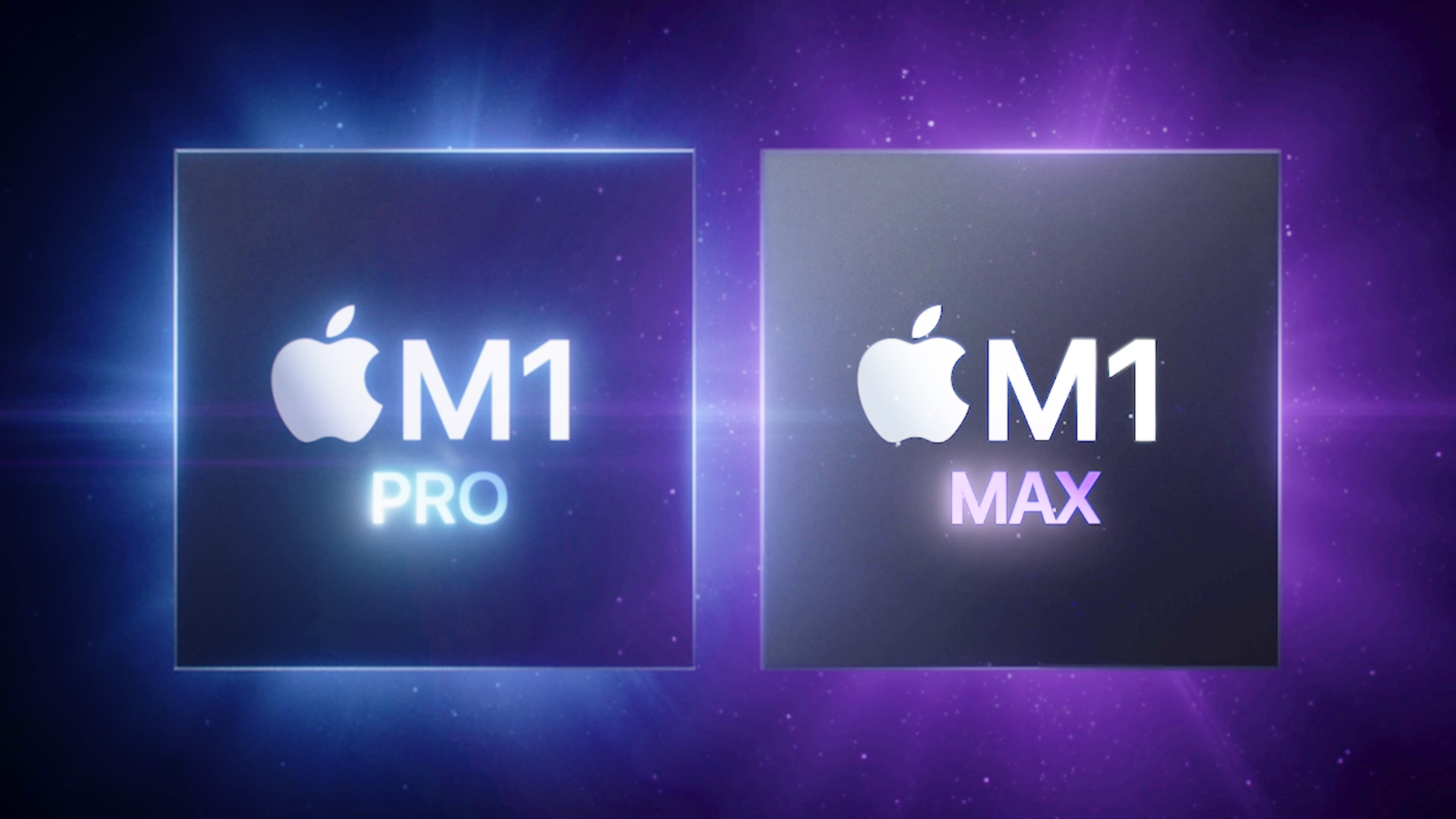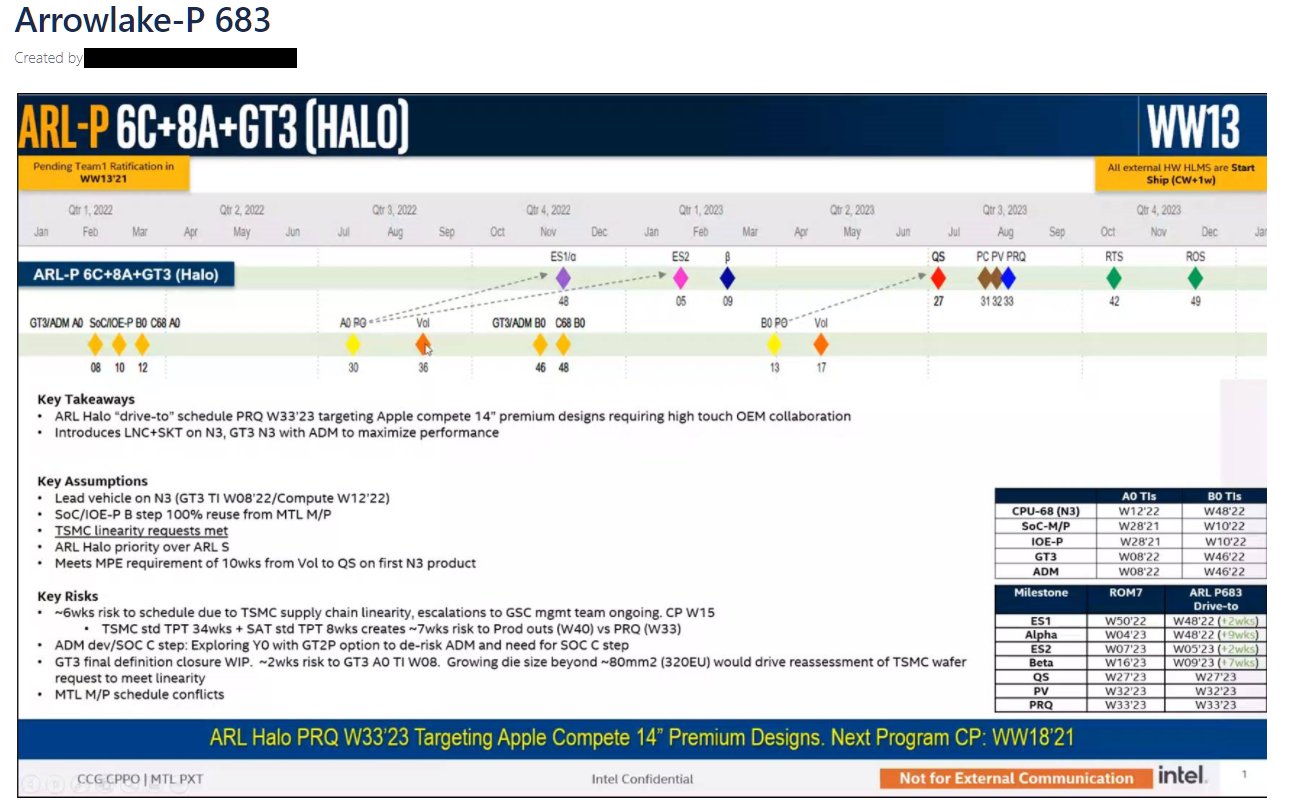![]()
A leaked roadmap by Intel suggests that the company is developing a new lineup of CPUs that are targeted at outperforming Apple's 14-inch MacBook Pro with the M1 Pro and M1 Max chips by late 2023, or early 2024, which would be almost two years after the new chips and laptop made their debut.
The roadmap by Intel, initially leaked by
AdoredTV and interpreted by
Wccftech, explicitly states that Intel wants to compete with Apple's 14-inch MacBook Pro with its Arrow Lake series. According to the roadmap, Intel's 15th generation Arrow Lake processors could be ready to ship by late 2023, or early 2024 with a priority on delivering high-performance while using minimal energy.
Leaked Intel roadmap shared online by AdoredTV
The roadmap also says that Intel will utilize TSMC's 3nm process. Apple currently utilizes the 5nm process for its latest chips and is expected to
adopt the 3nm chip architecture in 2023 with the "M3" Apple silicon chip and A17 chip in the iPhone 15.
Intel has already beaten Apple's M1 Max chip on paper if you ignore high-energy consumption and poor battery life.
Benchmarks show that Intel's latest Core i9 processors received a higher score than Apple's M1 Max chip in tests, but that 4% increase in performance is offset by a marked reduction in battery life compared to Apple's chips. Tests show that a laptop with Intel's latest i9 Core chip only lasts six hours for video playback. In comparison, Apple advertises the latest 16-inch MacBook Pro as getting up to 21 hours of battery life for offline video playback.
Ever since Apple announced its transition away from Intel during the summer of 2020, it has been slowly transitioning its Macs to custom-made chips. So far, Apple has released four laptop computers with Apple silicon, alongside two desktop computers. In just a few weeks, Apple is expected to announce at least one new Mac with Apple silicon, with possibilities being a new high-end Mac mini and an update to the low-end 13-inch MacBook Pro.
Article Link:
Leaked Intel Roadmap Reveals More Efficient Chip Than M1 Pro and Max to Launch Within Two Years




